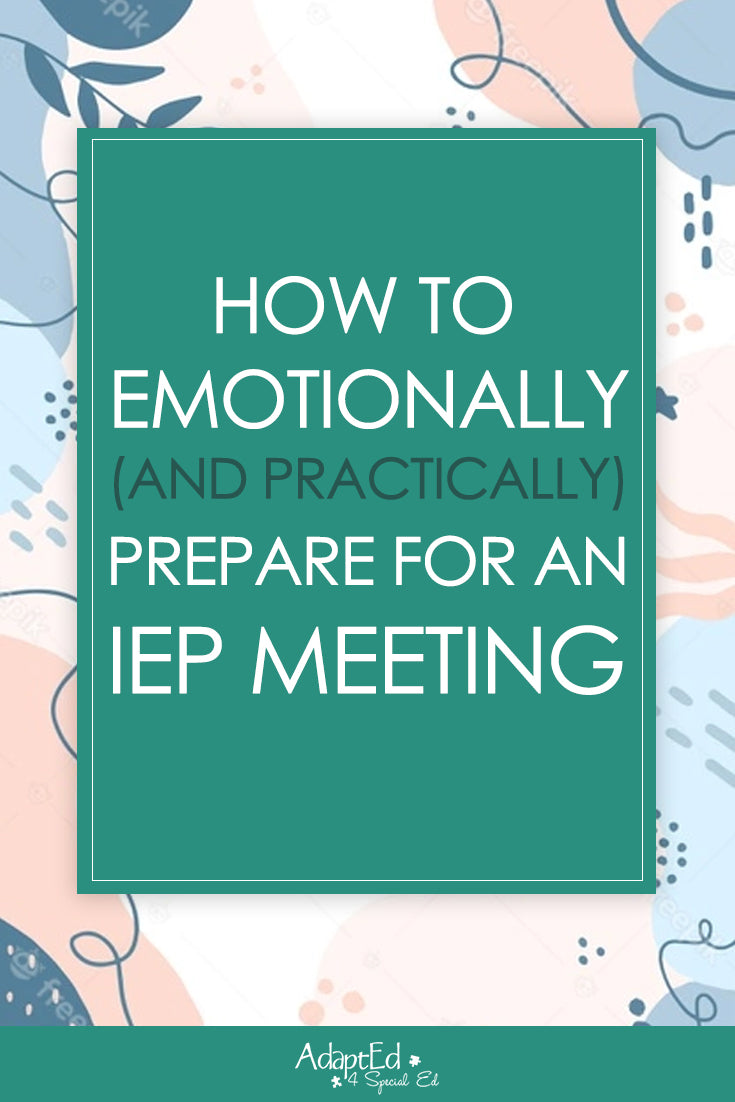For most parents of children with special needs, Individualized Education Plan (IEP) meetings are a routine part of life once their child is old enough to start school.
Regardless of whether you are new to the process or have been navigating the special education system for years, IEPs can be a little overwhelming.
There are some ways to prepare for an IEP meeting- both emotionally and practically- that can make the situation a little less stressful and a lot more productive.
Before the IEP
If this is your first IEP meeting, talk to someone who has been through the process. Although every case is different, there may be valuable insight to be gained from someone who has “been there, done that.”
Do as much research as you can beforehand and be aware of your rights. Disability Scoop and Wrightslaw are excellent resources for special education law and advocacy for children with special needs.
If you’re feeling overwhelmed, feel like your concerns aren’t validated, or if you’re unclear about anything at all, you can speak to an advocate. Many times, advocates will attend an IEP meeting with parents and caregivers for support.
Write down all of your questions beforehand. Most questions that you would ask during an IEP are going to depend upon the child since they all have unique needs and goals. Some questions that may be helpful that could pertain to anyone are:
- In regards to paraprofessionals and classroom aides, who will be working with my child every day? Will it be the same person?
- What happens if my child reaches their IEP goal well before the next meeting?
- Can I see any raw data you’ve used for tracking my child’s IEP goal progress?
Get your documents ready. Keep records organized in a binder where you can quickly locate them. Helpful items are reports from doctors, therapists, or case managers about your child’s disability. Another great thing to have on hand are printouts with information about your child’s condition, especially if the condition is uncommon.
If your child struggles with work at home, keep a log of time spent and the specific activities you do at home with your child to help with their school work.
Indulge in some self-care before the meeting. Whatever you would normally do to de-stress and relax- do it!
Keep calm. The worst thing you can do is walk into a meeting with a chip on your shoulder; most of the time, this accomplishes nothing. Try and remember that everyone is there for a common goal—to support your child as best they can.
During the IEP meeting
During the meeting, you’ll be discussing certain things about your child, which may include:
- Academic progress.
- Communication progress.
- Physical health and any accommodation needs.
- Independence skills,
- Socialization skills
- General and emotional well being
Don’t be afraid to ask questions or ask anyone to repeat something so you can be crystal clear on what’s going on. Taking notes can be helpful so you can go back and refer to them later. If you wish to record the meeting, check with the school as rules vary according to state departments of education and school districts.
After the meeting, make a communication plan with the school to ensure the IEP is being implemented properly.
Lastly, you got this! You are the strongest advocate your child will ever have.



